Can we get our work done AND still build family relationships?
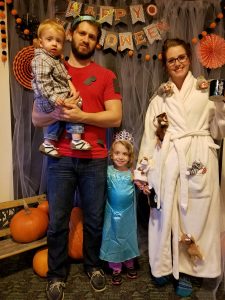 I went to Seattle to visit my youngest daughter’s family and to participate in her husband’s graduation. When we walked in the house from the airport at 11:30 that night we had to step over toys, shoes, the day’s clothes, etc. My daughter looked at me and said, “Mom I cleaned this house twice for you.” I smiled. I know that feeling. I also know that she has two small, busy children and that she spends time with them.
I went to Seattle to visit my youngest daughter’s family and to participate in her husband’s graduation. When we walked in the house from the airport at 11:30 that night we had to step over toys, shoes, the day’s clothes, etc. My daughter looked at me and said, “Mom I cleaned this house twice for you.” I smiled. I know that feeling. I also know that she has two small, busy children and that she spends time with them.
When I visit my daughter Marie, who has five children, the same scenario 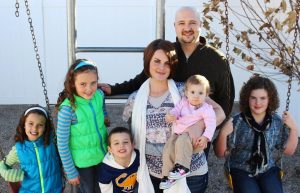 is repeated. She always asks me why I pick some major thing to clean every time I come. Well, it’s because I know what a challenge it is to stay on top of the daily things, let alone get any deep cleaning done, especially when you are willing to put it aside to help a five-year-old ride her bike or create a superhero costume for a nine-year-old son.
is repeated. She always asks me why I pick some major thing to clean every time I come. Well, it’s because I know what a challenge it is to stay on top of the daily things, let alone get any deep cleaning done, especially when you are willing to put it aside to help a five-year-old ride her bike or create a superhero costume for a nine-year-old son.
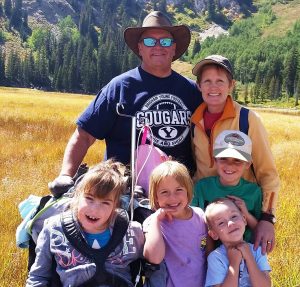 I live with my oldest daughter and her family, in an attached apartment. So I see what goes on there even more intimately. It is almost always slightly chaotic. The floor is rarely uncluttered for more than a few hours at a time. But I see her stop what she is doing to help any one of her four children with whatever project or need they may have. In fact, I have thought to myself, “Man, I would have told them I would help them later.” You see, I still have to work on being Present!
I live with my oldest daughter and her family, in an attached apartment. So I see what goes on there even more intimately. It is almost always slightly chaotic. The floor is rarely uncluttered for more than a few hours at a time. But I see her stop what she is doing to help any one of her four children with whatever project or need they may have. In fact, I have thought to myself, “Man, I would have told them I would help them later.” You see, I still have to work on being Present!
There are many things we have to DO to manage our home and family. They have to be done. Good mothers and fathers take care of the physical needs of their home and children. They cook, clean, care for the yard, do laundry, teach, admonish, and model appropriate behavior.
Being Present happens when we stop long enough to actually see and hear our child, when we step out of management mode and into relationship building even for just a few minutes at a time.
Let me give you an example of leaving the job of family management for the joy of relationship.
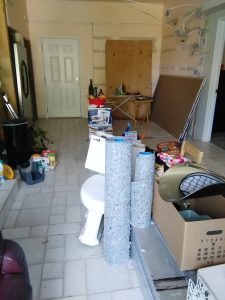
We have all moved to a new city. It has taken a few months of remodeling the old home while we still lived there, living in temporary quarters while we found a new home, and now living in another remodeling mess. It has been chaotic and stressful, to say the least. We haven’t been able to fully move in and it has been over a month and a half. All of us, including the children, have had to deal with a great deal of stress.
A couple of days ago, after a long day of work, Doug was trying to get the
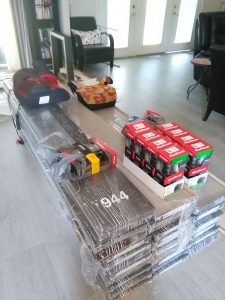
new table assembled so their family can finally eat a meal sitting together. This was a project which not only needed to be done; it was a project that felt important to the family fabric after weeks of chaos.
At the same time Ben, who is five, found an app that he desperately wanted to download onto his tablet. Mom was at the hospital with his sister, Maggie, who had just had major surgery. So he asked his Dad to help him call his mom so he could get the code to download the app.
As his Dad continued to work on the table Ben repeated his query. “Dad, can you help me.” “I really want to download this app.” “Dad, this is a super game and you will like it.” “Please, call mom.”
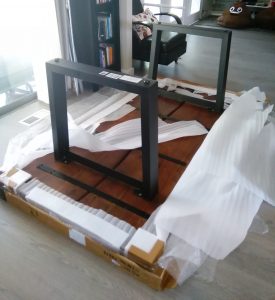
Doug responded to Ben’s repeated questions about the app while still working on the table. “You can’t download anything if it costs money.” “Your mom can help you when she gets home.” “I have to get this table done.” “Wait a minute.” “Ben, you can’t download anything until I look at it.” This went on, back and forth between them, for about thirty minutes. I could see that Doug’s patience was thinning. He exclaimed, “Ben, you’re killing me son.”
Then Doug did a wise and wonderful thing. He stopped working on the table. He walked over to Ben, took hold of his hands and looked him in the eye. He asked, “Ben, what app are you talking about. Show me.”
In about five minutes they had the app downloaded and Ben was happily working on it and Dad was back finishing the table.
We often postpone or even neglect these types of Present moments because we think they will take a lot of time. But being Present usually happens in less than five minutes. It is something we can learn to do every day and use only minutes of our time. It is a doable skill that any parent can practice and learn.
Did you notice the four simple things that Doug did that led him to a magical Present moment with his son? First, he stopped. Second, he turned away from what he was doing. Third, he looked fully into his son’s face. Fourth, he touched his child. In that moment I saw his heart soften, his focus change from the table to his son. It was magical, simple, and it only took him five minutes to take care of Ben’s need.
We can all be more Present parents if we will learn to STOP, TURN away from whatever we are doing, LOOK into our child’s eyes, and then TOUCH them.
Regularly I pick a verse of scripture to think on and memorize. I appreciate the discipline and I like the messages. A few years ago I choose Matthew 13:16: “But blessed are your eyes, for they see: and your ears, for they hear.” May we all be blessed in our relationships as we practice the art of being Present – STOP, TURN, LOOK and TOUCH.
What are your struggles with being Present in your day to day activities? Share and let me respond. : )

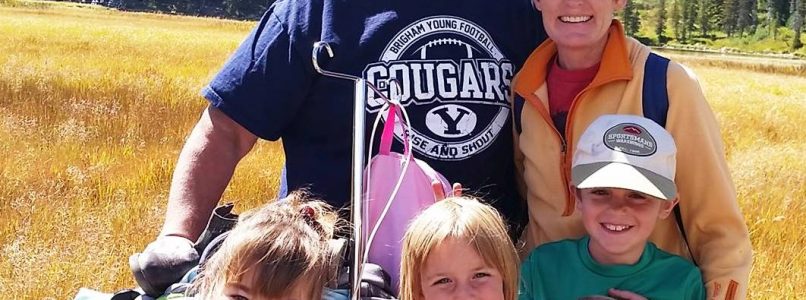

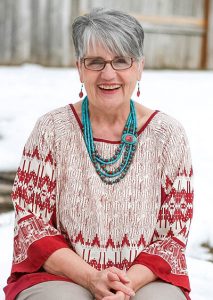 I had a friend ask me a very interesting question the other day. “Did you write your book because you had troubles in your own family?” That was a fair question but the answer was NO. That isn’t why I wrote it.
I had a friend ask me a very interesting question the other day. “Did you write your book because you had troubles in your own family?” That was a fair question but the answer was NO. That isn’t why I wrote it.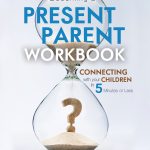
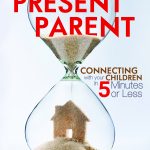 I received so many emails from people who had attended classes, workshops, webinars, and presentations saying that this information was life changing for them. I knew there had to be a way to broaden the audience and touch more families. That is how
I received so many emails from people who had attended classes, workshops, webinars, and presentations saying that this information was life changing for them. I knew there had to be a way to broaden the audience and touch more families. That is how  “Being a single woman, without children, I wasn’t sure what value this book would have for me. It impacted me greatly! I have set a goal to re-read it every few years. It’s not just a book about being a Present parent. It’s a book about being a Present person. Jenny Johnson, M.A., CCC-SLP
“Being a single woman, without children, I wasn’t sure what value this book would have for me. It impacted me greatly! I have set a goal to re-read it every few years. It’s not just a book about being a Present parent. It’s a book about being a Present person. Jenny Johnson, M.A., CCC-SLP just with children, but with all relationships. I have enjoyed it profoundly… Jason Hewlett, Dad and Speaker
just with children, but with all relationships. I have enjoyed it profoundly… Jason Hewlett, Dad and Speaker  I’m not much of a reader. Unless a book catches my attention within the first few pages, I seldom read it all the way through. This book not only drew me in from the beginning but I finally had to make myself stop reading and go to bed. “Becoming a Present Parent” will be one of those life-changing books for parents and for anyone who wants to have an amazing relationship with child. Well worth the read. Cindy Winward, Mother of four grown children and mentor at Midwives College of Utah
I’m not much of a reader. Unless a book catches my attention within the first few pages, I seldom read it all the way through. This book not only drew me in from the beginning but I finally had to make myself stop reading and go to bed. “Becoming a Present Parent” will be one of those life-changing books for parents and for anyone who wants to have an amazing relationship with child. Well worth the read. Cindy Winward, Mother of four grown children and mentor at Midwives College of Utah insight and real-life steps in helping you stay “checked in” with your children, a difficult thing in this distracting world. I love how Mary Ann teaches us how to truly connect with our children. Ann Webb, Humanitarian, Author and Founder of Ideal LifeVision
insight and real-life steps in helping you stay “checked in” with your children, a difficult thing in this distracting world. I love how Mary Ann teaches us how to truly connect with our children. Ann Webb, Humanitarian, Author and Founder of Ideal LifeVision You may read Becoming a Present Parent all the way through one time. But then you’ll come back to it time and again to refresh on certain topics at the very time you need them. My guess is your copy will become dog-eared and marked up, and will become like a comfortable friend. Norma Jean Lutz, Author, Speaker, Editor, Novel Critique Consultant, Ghostwriter
You may read Becoming a Present Parent all the way through one time. But then you’ll come back to it time and again to refresh on certain topics at the very time you need them. My guess is your copy will become dog-eared and marked up, and will become like a comfortable friend. Norma Jean Lutz, Author, Speaker, Editor, Novel Critique Consultant, Ghostwriter 
 If you say “My kids are driving me nuts,” they’ll drive you nuts. If you say “I can’t stand my kids today,” or “My kids are so sloppy, messy, noisy, naughty, etc.,” that’s what you’ll get. It’s what you perceive is happening, regardless of what’s actually going on. This will influence your response and your ability to be Present.
If you say “My kids are driving me nuts,” they’ll drive you nuts. If you say “I can’t stand my kids today,” or “My kids are so sloppy, messy, noisy, naughty, etc.,” that’s what you’ll get. It’s what you perceive is happening, regardless of what’s actually going on. This will influence your response and your ability to be Present.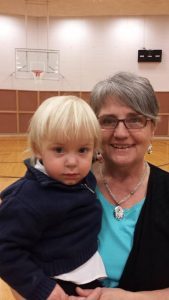
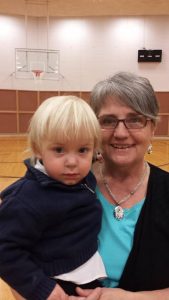 As you know I have been writing a new book – Becoming a Present Parent: Maximizing Presence in Five Minutes or Less. I started in August 2015 and finished in January 2016. Since then I have been learning the dance of being an independent author. Whew, it has required a lot of dance lessons!!
As you know I have been writing a new book – Becoming a Present Parent: Maximizing Presence in Five Minutes or Less. I started in August 2015 and finished in January 2016. Since then I have been learning the dance of being an independent author. Whew, it has required a lot of dance lessons!!